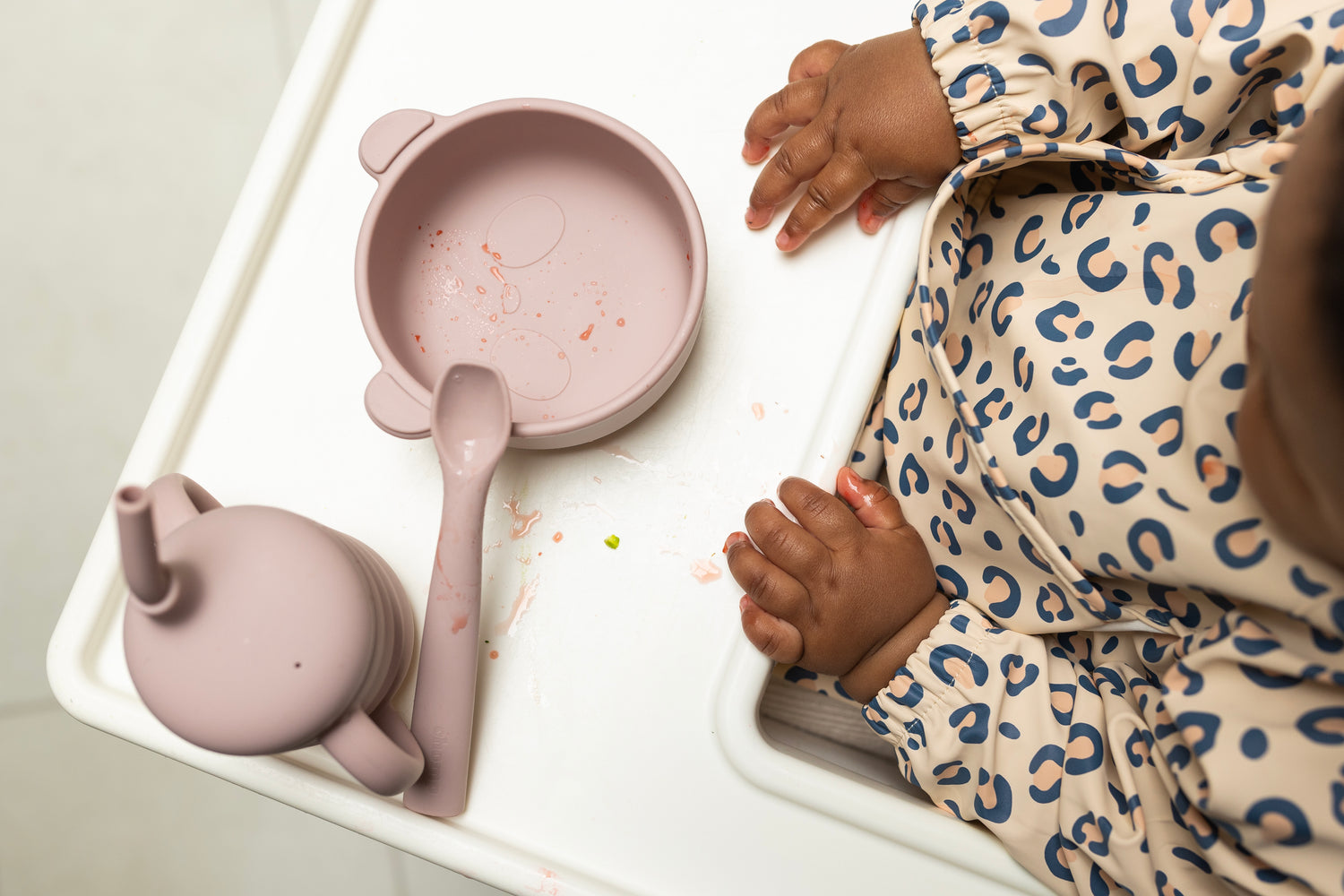Hello, dear parents and caregivers! 🌟
Welcome back to another informative and supportive blog post on your weaning journey. Baby mealtime is an exciting time filled with new discoveries and adventures into the world of solid foods. However, it's equally important to be aware of foods that should be avoided during this crucial phase. In this comprehensive guide, we'll discuss foods to steer clear of, following UK guidance to ensure your little one's safety and well-being.
1/. Honey 🍯
Honey is often viewed as a natural sweetener, but it can pose significant risks to infants. According to UK guidance, honey should be strictly avoided for babies under the age of one. The reason behind this caution is the potential presence of Clostridium botulinum spores, which can lead to infant botulism—a rare but serious illness.
Reasons to avoid Honey
- Immature Digestive System: Babies' digestive systems, especially those under one year old, are not fully developed. Their stomach acidity is lower, making them more susceptible to harmful bacteria like Clostridium botulinum.
- Botulism Risk: Honey can contain spores of Clostridium botulinum, which can multiply and produce toxins in an infant's immature digestive tract, causing botulism. Symptoms of infant botulism may include constipation, weak muscles, and difficulty swallowing.
- Preventive Measures: To protect your little one, it's crucial to avoid adding honey to their food or giving them any products that contain honey, such as honey-flavored cereals or teething biscuits. Make sure to check food labels.
Unpasteurized dairy products, such as raw milk and some soft cheeses, carry a higher risk of containing harmful bacteria like Salmonella, E. coli, and Listeria. These bacteria can lead to severe foodborne illnesses, which can be especially dangerous for infants.
Reasons to avoid Unpasteurized Foods
- Bacterial Contamination: Unpasteurized foods have not undergone the pasteurization process, which involves heating the food to kill harmful bacteria. Infants have vulnerable immune systems, making them more susceptible to foodborne illnesses.
- Listeria Risk: Listeria monocytogenes, commonly found in unpasteurized cheeses and dairy products, can cause listeriosis—a serious illness that can lead to meningitis, septicemia, or even fetal death if the mother is infected during pregnancy.
Choking hazards can be a concern during the weaning process. Infants have small airways and limited chewing abilities, making certain foods a choking risk.
Common Choking Hazards to Avoid:
- Whole Grapes: Grapes, especially when served whole, can easily block an infant's airway. Always cut grapes into small, manageable pieces or consider offering them as mashed or cooked.
- Nuts and Seeds: These are hard and can pose a choking hazard. Avoid giving whole nuts or seeds to infants. Instead, you can incorporate them into their diet in finely ground or butter form (if there are no nut allergies).
- Small Hard Foods: Items like popcorn, raw carrots, and chunks of raw apple can be challenging for babies to swallow safely. Opt for cooked or finely grated versions of these foods.
4/. Uncooked/Undercooked Meat, Fish, and Eggs - Minimizing Foodborne Risks 🥩🐟🍳
Proteins from meat, fish, and eggs are essential for your baby's growth and development. However, it's crucial to prepare them safely to avoid foodborne illnesses.
Why Avoid Uncooked/Undercooked Meat, Fish, and Eggs:
- Bacterial Risks: Raw or undercooked meat, fish, and eggs can contain harmful bacteria such as Salmonella or E. coli, which can lead to food poisoning.
- Developmental Vulnerability: Babies have developing immune systems, and their bodies may not be as equipped to handle harmful bacteria as adults. Therefore, it's essential to cook these foods thoroughly before introducing them to your baby.
- Safety Measures: Cook meat, fish, and eggs until they are well-done, with no pink or runny parts. Ensure that egg whites and yolks are solid before serving. Eggs stamped with the Red Lion British Seal as safe to serve soft.
5/. No Raw Flour or Raw Sprouts - Avoiding Contaminated Ingredients 🍞🌱
Raw flour and raw sprouts might not be on your radar when it comes to baby weaning, but they also carry potential risks.
Why Avoid Raw Flour and Raw Sprouts:
- E. coli and Salmonella Risks: Raw flour can be contaminated with E. coli and Salmonella, which can cause foodborne illnesses if ingested. Similarly, raw sprouts have been associated with outbreaks of foodborne illness.
- Preventive Measures: When preparing foods that contain flour, such as pancakes or baked goods, or sprouts, ensure they are well cooked

Final Thoughts - Prioritising Your Baby's Safety and Health
As parents and caregivers, your top priority is your baby's health and well-being. Following UK guidance and being aware of foods to avoid during the weaning process is a significant step in ensuring their safety. While it's essential to provide a variety of nutritious foods to support your baby's growth, it's equally crucial to be vigilant and make informed choices.
Remember, each baby is unique, and their weaning journey will unfold at their own pace. By taking precautions and being attentive to potential risks, you can create a safe and nurturing environment for your little one as they embark on this exciting adventure of discovering the joys of solid foods.
Should you need additional support, please download our Baby Feeding Charts which clearly identify baby first foods and allergens, as well as provide meal planners, reactions and milestone trackers (pop your email here and we'll send it straight over to you)
Here's to your baby's health, happiness, and a wonderful weaning journey!
With all my support
Amber 💕
Mama & Chomp Founder
This blog has been created in consultation with baby healthcare professionals and NHS Guidelines. Speak to a medical professional immediately if you have any concerns about about the health of your child.


